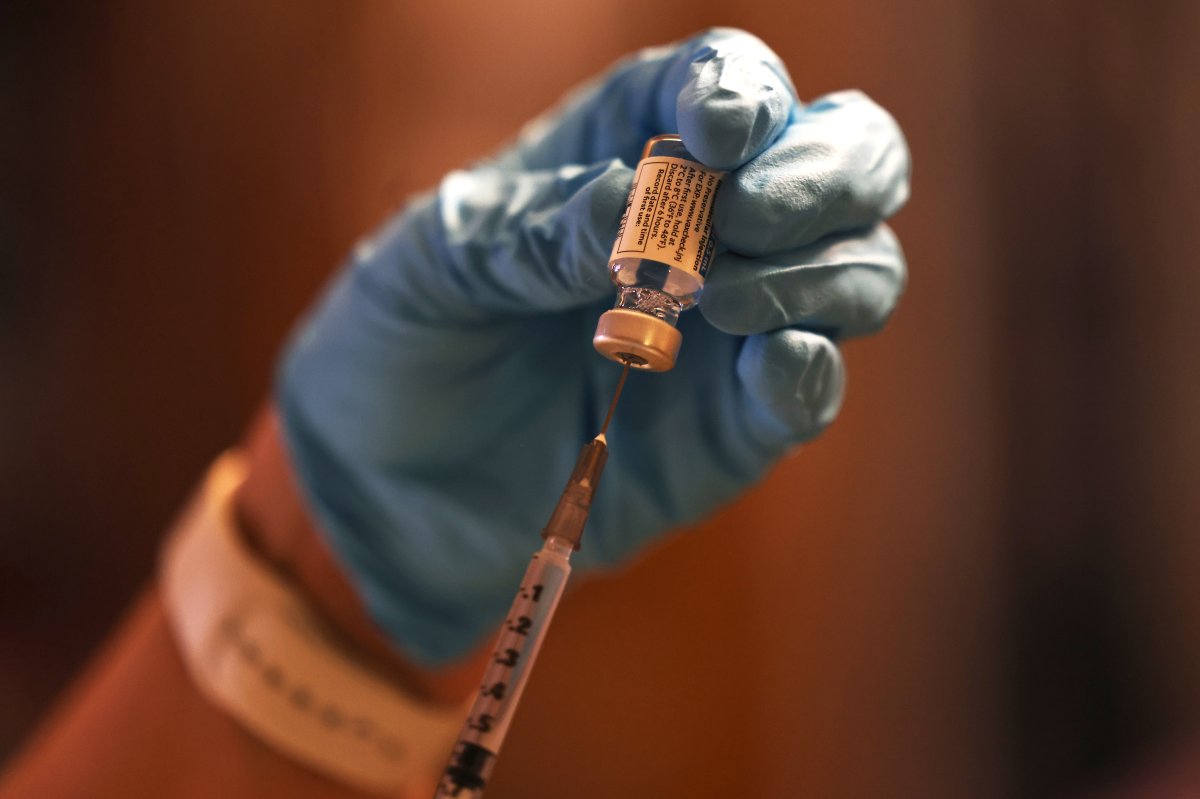The Manitoba government is changing its COVID-19 vaccination strategy slightly to get shots in arms more quickly.

Temporary pop-up clinics that have so far focused on getting the Moderna vaccine out to many small rural communities will be used next week at fewer but larger centres.
The province’s vaccine task force says that will likely include a pop-up site in Winnipeg, to add to the existing mass vaccination site at the convention centre.
“We will be adjusting the use of pop-up clinics so that we use them mainly in locations where they are necessary,” explained Johanu Botha, co-lead of Manitoba’s vaccine implementation task force said Wednesday.

“We’ll be finalizing that approach in the days ahead, but I think it is fair to say that Manitobans can, for the short term, expect fewer but faster options.”
The move could mean more than 9,000 doses of the Moderna vaccine shifted away from rural areas into the more densely-populated city, which has consistently seen the province’s highest daily case counts of COVID-19.
Manitoba has been under pressure to ramp up vaccine distribution as COVID-19 case numbers grow and more contagious variants spread.
Health officials announced three additional deaths tied to COVID-19 and 86 new cases Wednesday. Six older cases, however, were removed due to data correction for a net increase of 80.

Get weekly health news
Botha said some of the channels being used — the travelling pop-up sites, pharmacies and doctors’ offices, and distribution on remote First Nations — can take longer, both in terms of administering the doses and updating the provincial database that tracks the number of shots given.

As of Wednesday, roughly 21 per cent of adults in the province had received at least one vaccine dose. The government expanded vaccine eligibility Wednesday, by dropping the minimum age by one year to 39 for First Nations people and 59 for others.
Health officials are looking at other potential changes as well, such as reducing the minimum age requirement in hot zones.
“That’s exactly the kind of thing that we’re looking at right now,” said Dr. Joss Reimer, medical lead of the vaccine task force.
“We have seen … that certain geographic areas are at higher risk of transmission generally and at higher risk of severe outcomes.”
According to the province’s latest data, 299,821 doses of vaccine have been administered since December, including 231,103 first doses and 68,718 second shots.
The province also announced plans to open a second vaccine supersite in the Southern Health Region in May.
The new clinic will be located at 294 Lumber Ave. in Steinbach, and the province says it will provide more details on when appointments can be made closer to when the site opens.
Last week the province announced a second supersite will open in Winnipeg May 7 at the Winnipeg Soccer Federation’s facility on Leila Avenue in the Garden City neighbourhood.
In all the province plans to open 13 supersites across Manitoba.
— With files from Shane Gibson

Questions about COVID-19? Here are some things you need to know:
Symptoms can include fever, cough and difficulty breathing — very similar to a cold or flu. Some people can develop a more severe illness. People most at risk of this include older adults and people with severe chronic medical conditions like heart, lung or kidney disease. If you develop symptoms, contact public health authorities.
To prevent the virus from spreading, experts recommend frequent handwashing and coughing into your sleeve. They also recommend minimizing contact with others, staying home as much as possible and maintaining a distance of two metres from other people if you go out. In situations where you can’t keep a safe distance from others, public health officials recommend the use of a non-medical face mask or covering to prevent spreading the respiratory droplets that can carry the virus. In some provinces and municipalities across the country, masks or face coverings are now mandatory in indoor public spaces.
For full COVID-19 coverage from Global News, visit our coronavirus page.









Comments